As "the world watches death in real time, streamed online", filmmaking comes into even more radical relation to reality.
The documentaries presented as the first session on March 4 ask questions about what is necessary to film and possible to show in the unspoken experience of war and displacement, which archives we search and in what frames we sculpt identities that are constantly slipping from our hands.
The second session combines film-letters, whose authors are separated and brought closer to their addressees - dead and unborn, real and fictional interlocutors - by different eras, kinship, land borders and prison bars.
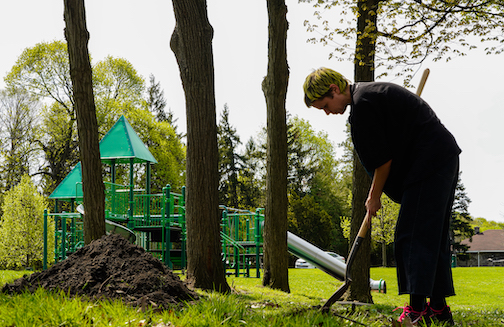
"In Syracuse - the earth is clay and full of stones. While digging, I tried to remember what kind of land is beneath the playgrounds of Mariupol. I also thought that diggers are the new heroes of our time. Digging, digging, digging--graves, trenches, shelters. The graves are part of our new landscapes in Ukraine, which, as of now, I have only seen in photos. I tried to dig a grave big enough for my own body. I tried to dig as fast as possible, imagining that it was the only time I had to bury a loved one before the next shelling. I think people dug graves while shelling was going on." - Oksana Kazmina
Oksana Kazmina is a Ukrainian documentary film maker, media artist and performer.
Oksana graduated from the Faculty of Journalism at Ivan Franko Lviv National University, the Faculty of TV-Directing at Karpenko-Kary Kyiv National Theater, Film and Television University, and Moving Academy for Performing Arts - Amsterdam. Oksana was also a Visiting Assistant Professor of Film Studies at Wesleyan University, USA, 2016. Now Oksana is an MFA candidate at Syracuse University, USA..
Since 2015 Oksana has been working on her debut feature “Underwater". “Underwater” is a long term exploration of everyday practices of dealing with the patriarchy. It registers different aspects of life and work of four, including herself, Ukrainian artists. Underwater yielded an online exhibition www.dokvira.cam, which critically approaches documentary film industry.
Just before the full scale invasion of Ukraine Oksana started a series of performative walks/lectures “Contemporary History of Ukraine” and bio-dairies “Dead/ly landscapes or I myself should become all places I loved”.
These projects map Oksana’s main interests and practices starting from 2015, they interconnect and grow horizontally as different collaborations between its participants arise: artistic collective OKCAHAS (together with AntiGonna), interdisciplinary project “Body Practices” (together with Anatoliy Bielov), music band “Serviz Propav” (together with Vasyl Tkachenko).
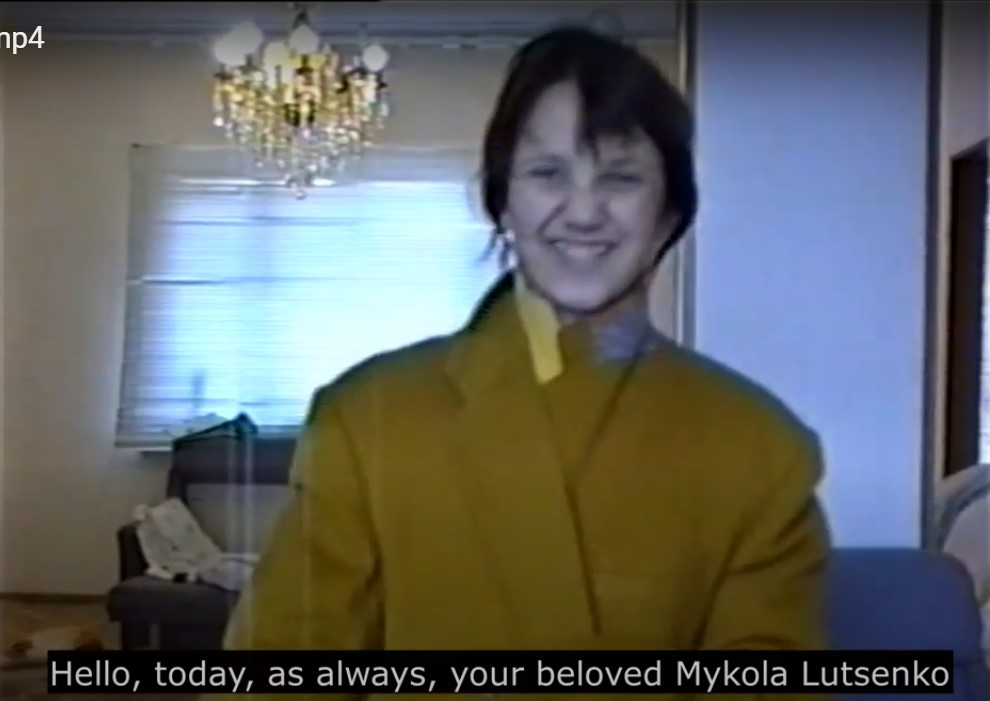
Weather Forecast - Kamilla Yanar (2022, 9’) is an autoethnographic observation of videos from 2003, captured with a handheld home-video camera on VHS tape. Footage of the house feasts of a Tatar* family intertwine with clips evidencing the destruction of the town of Shakhtarsk by the Russian troops in 2014, and with DIY videos made in 2003 by a girl imitating TV-shows. In the interaction with the TV screen the girl performs a fight between herself and Volodymyr Klitchko, followed by a weather forecast that recalls the geopolitical transformation of Ukraine since 2003. The video explores the refugee’s mental ecosystem, as it rises above interweaving roots of analogue recordings, videos populating social media, and rituals of private memory.
*Tatars are one of the largest minority groups of Eastern Europe, who have undergone several waves of starvation, repression, and deportation throughout the formation and ongoing legacy of Soviet extractivist infrastructure.
Kamilla Yanar is an artist originally from Shakhtarsk (Donetsk region, Ukraine) which was occupied in 2014. Before the full-scale invasion she was based in Kharkiv. Yanar’s video, photography, and graphic practice addresses issues of intimate memory and forced migrations. Between 2017–2020 she taught art at the Azanizimaza art center, Kharkiv. Her works have been shown in Yermilov Centre, Garage127, Kooperativ, and the land art symposium Prostir Pokordonnia 2021, among other spaces.
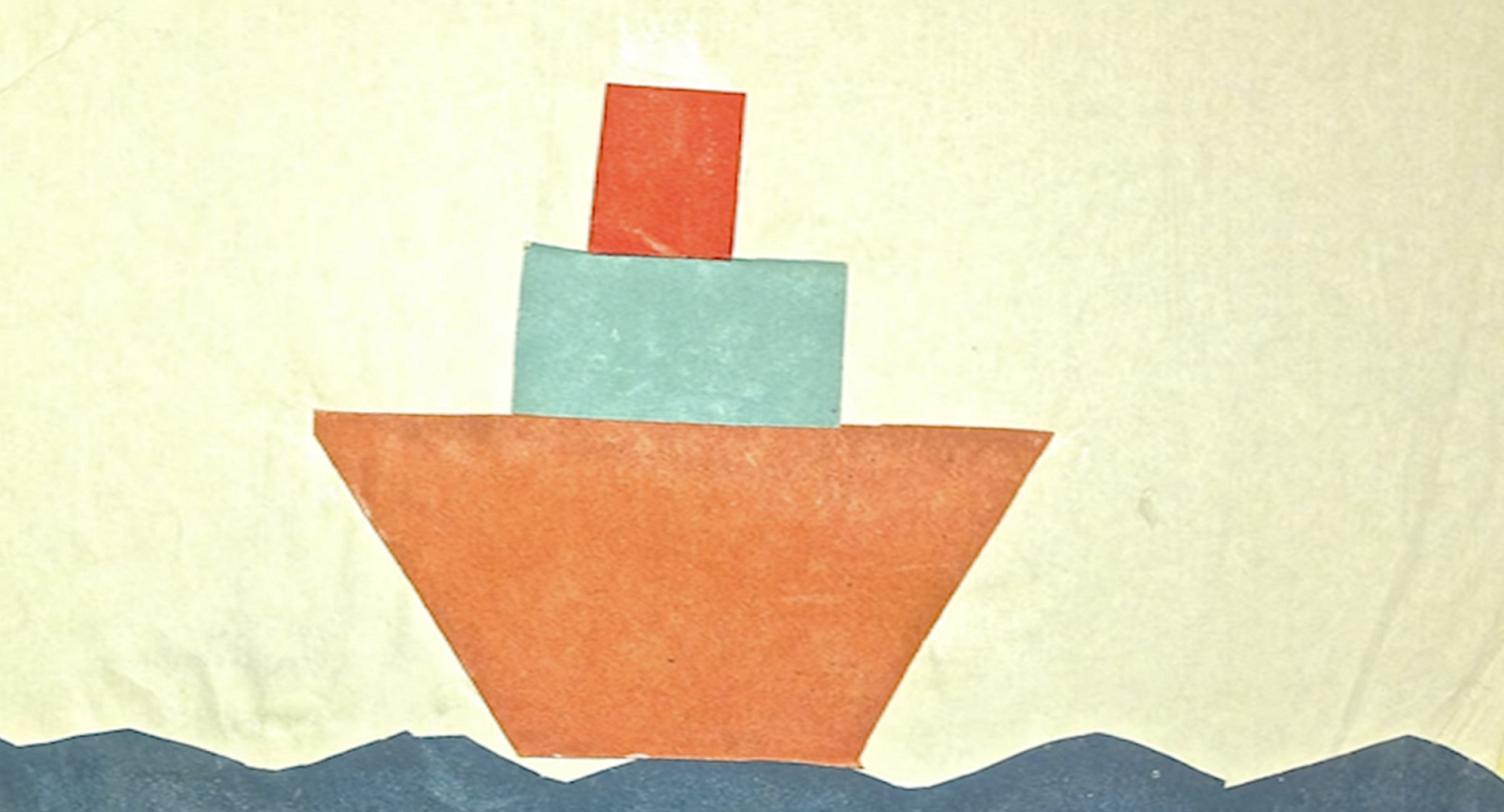
On Being Dziapshipa - Anna Dziapshipa (2018, 9’) - Surnames in Georgia reflect both history and geography. Depending on your family name, people can tell where you are from and sometimes who you are. An “uncommon” last name rarely goes unnoticed. Filmmaker Anna Dziapshipa knows it well. Her Abkhaz surname stirs emotions in Georgia: some recall the acclaimed 1950s soccer player, Niaz Dziapshipa, but most remember Abkhazia, the region which Georgia lost after a brutal conflict in the early 1990s. In this experimental video, Dziapshipa delves into the intricacies of nationality and identity as reflected in the difficulties many Georgians have in writing or saying her surname.
Screenings followed by a talk with Anna Dziapshipa
B. 1982 Tbilisi, Georgia Anna Dziapshipa is a filmmaker, producer and visual artist. With experience and professional biography in art history, film producing, cultural management, experimental video, and documentary film. Her works often explore the transformation of physical borders into memory and identity. Her works are part of international film festivals and art exhibitions. She is the co-founder and director of the documentary film company Sakdoc Film.
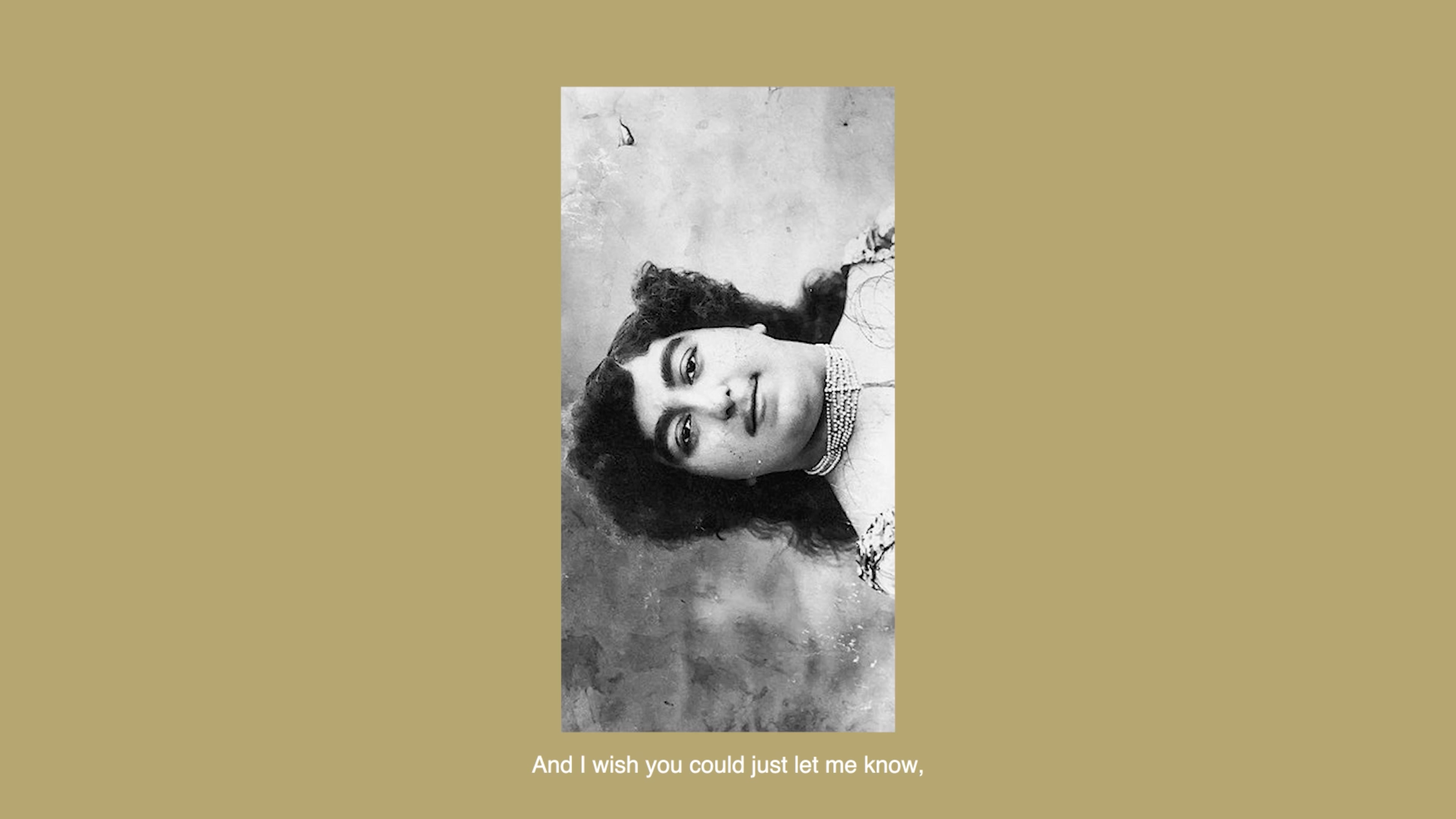
Gut Feelings: Fragments of Truth - Katayoun Jalilipour (2021, 12') - a multiple-part project – is inspired by the lives of historical figures during the Qajar era in Iran (1785-1925), such as Tāj al-Saltaneh (1884 – 1936), a member of Qajar dynasty and feminist activist who, in the internet era and digital world, is misrepresented and the subject of racist and misogynistic memes. Tāj al-Saltaneh is central to ‘Gut Feelings: Fragments of Truth’, and her well-documented life provides a window into the lives of other Qajar women. The film asserts the importance of truthful and accessible archival information and examines the part oppressive systems play in spreading misinformation. It asks how fragments of historical truth might reimagine queerness in pre-westernised Iran.
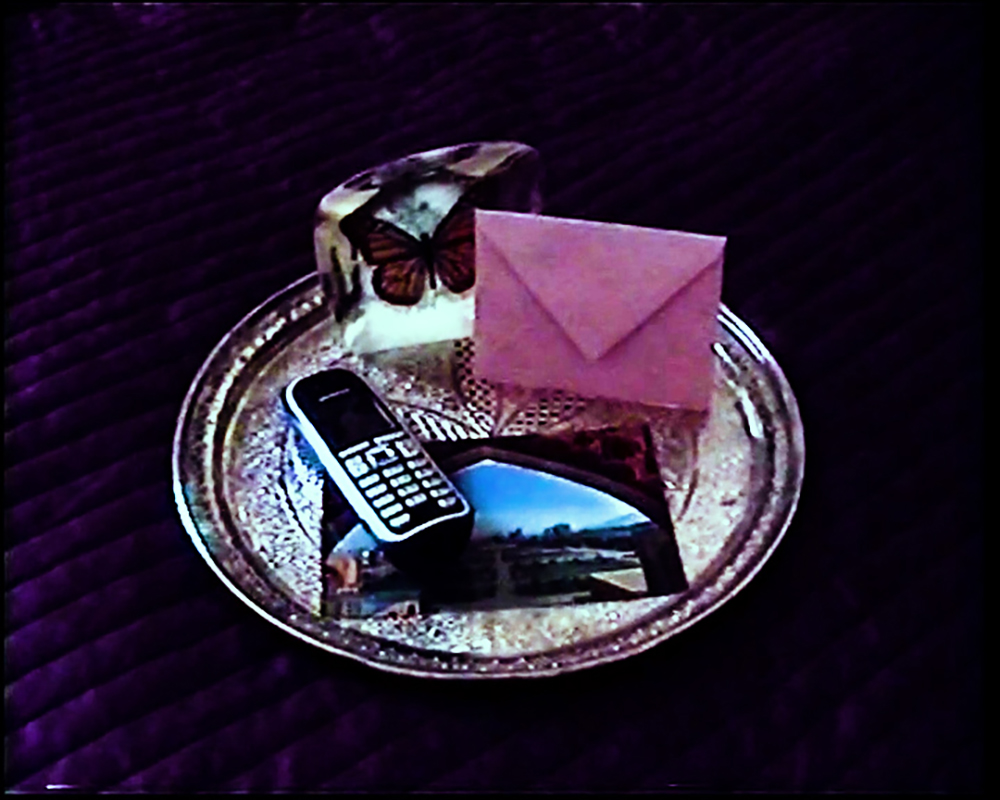
The Sparrow is Free - Niki Kohandel, (2021, 14') - In an empty house, a young woman hears a voice. The tales it recalls lead her to recreate scenes from her grandmother’s past. Kohandel's short film, composed around an interview with her grandmother, explores gender roles in early 20th-century Iran through a series of domestic objects. As she voices her own story, the film weaves her experiences together into a broader narrative of self-determination. As a young girl, her grandmother’s marriage to her older cousin led to years of control and frustration. Rebelling against her husband, she eventually relocated to France with her sons, building a new life and carved out her independence in Paris, finding comfort in the everyday. A simple kind of happiness follows. The sparrow is free.
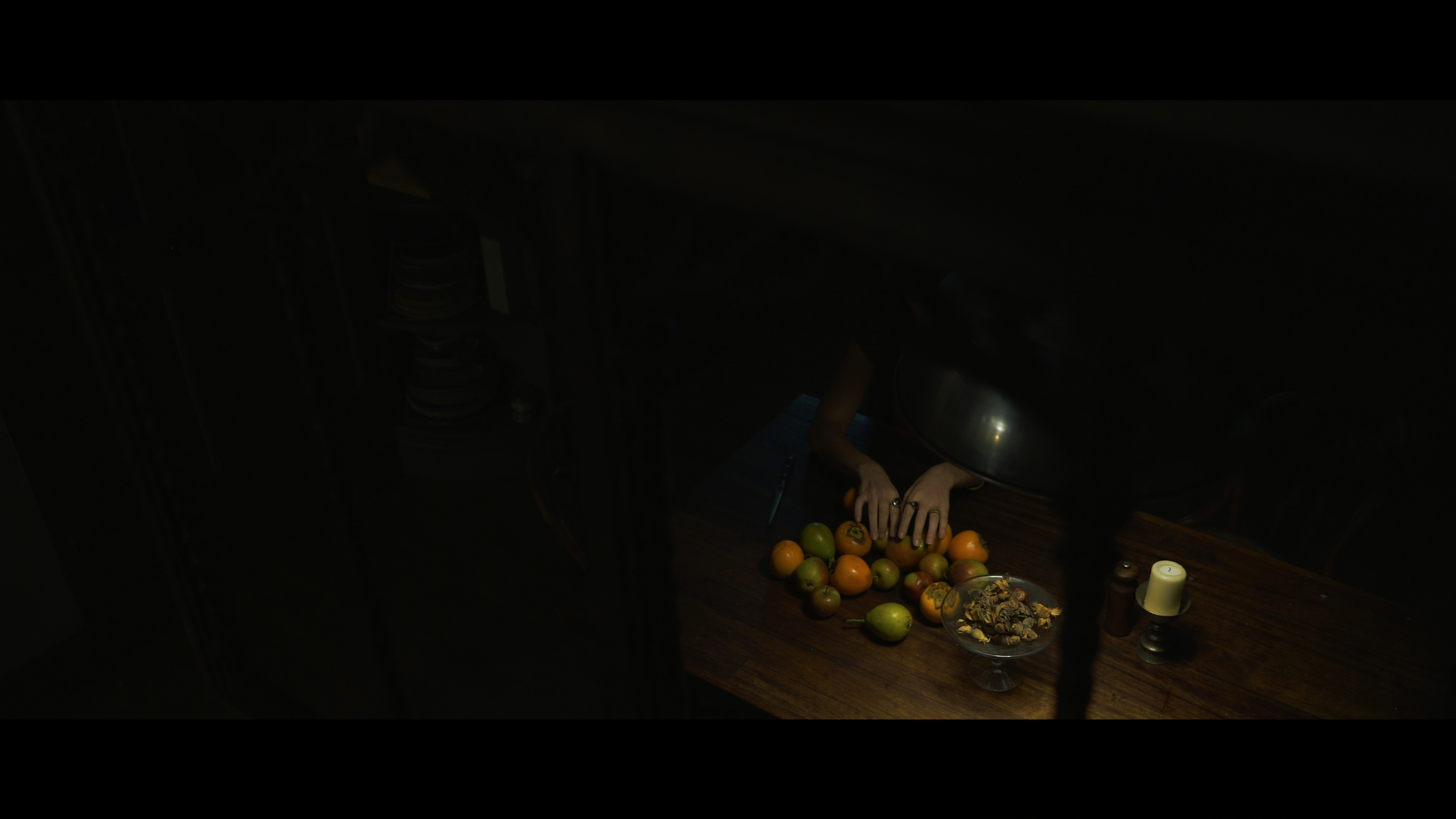
Mothers Apricot Compote - (2020, 24’) - A fragmentary narrative of two women whose lives are distant from each other, yet hold traces of resemblance. The film conjures the ghosts that haunt the daily lives of these two women. It is at once a rumination on the experience of the immigrant within and without the Iranian diaspora, and the ways in which generational memory cracks through the surface of everyday life.
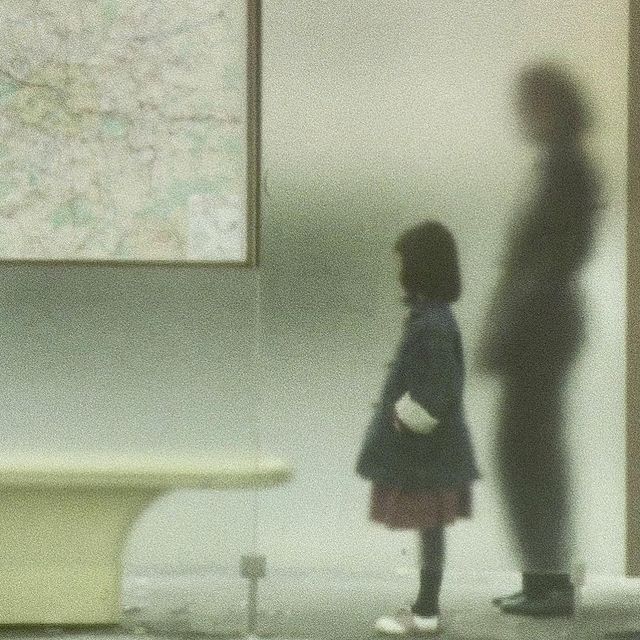
Letter to an Unborn Child - Sepideh Farsi (1988/2018, 4’) - The film is a well dug into the past. Made with bits of an unfinished film, "Red Shoes,” which was to be my very first auto-produced short film, but that remained “unborn” due to lack of money. What links the 16 mm footage that is the body of the present film, the poem that represents the heart of it, and the finished opus Letter to an Unborn Child represents close to thirty years of my life. —Sepideh Farsi